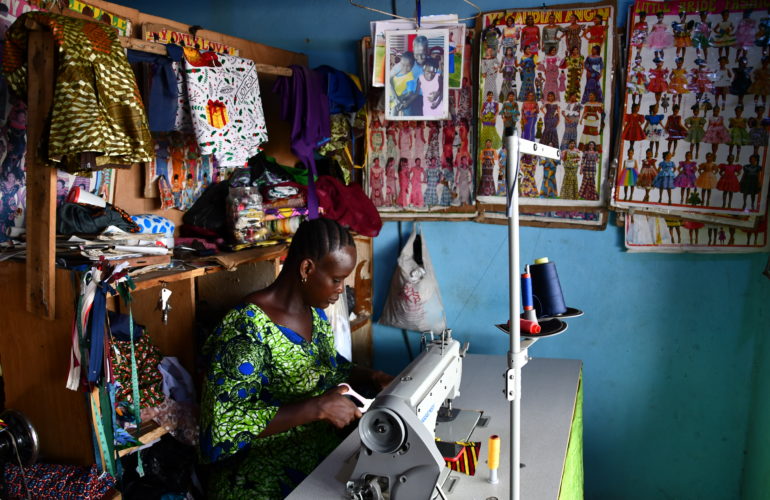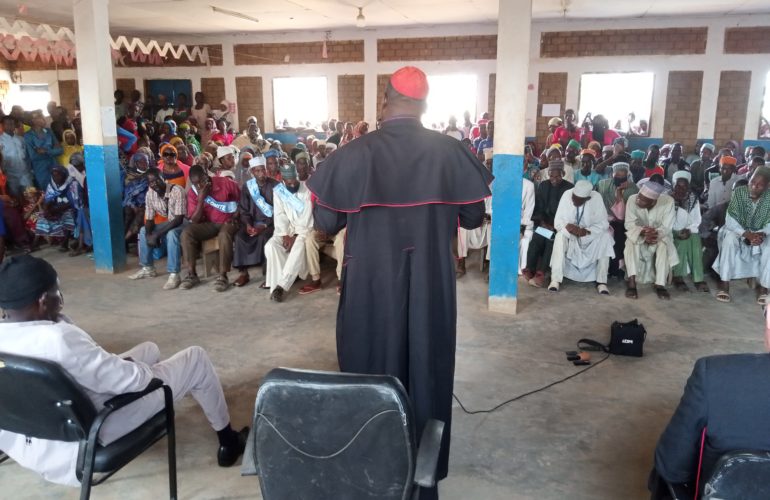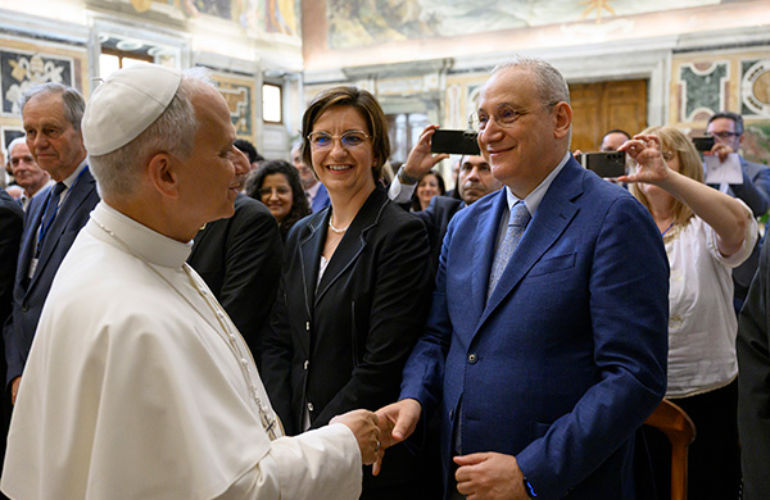ICMC Members Support Sustainable and Dignified Return and Reintegration for Refugees and Migrants
As many millions of refugees and migrants return home each year, ICMC supports its members around the world to assist their reintegration.
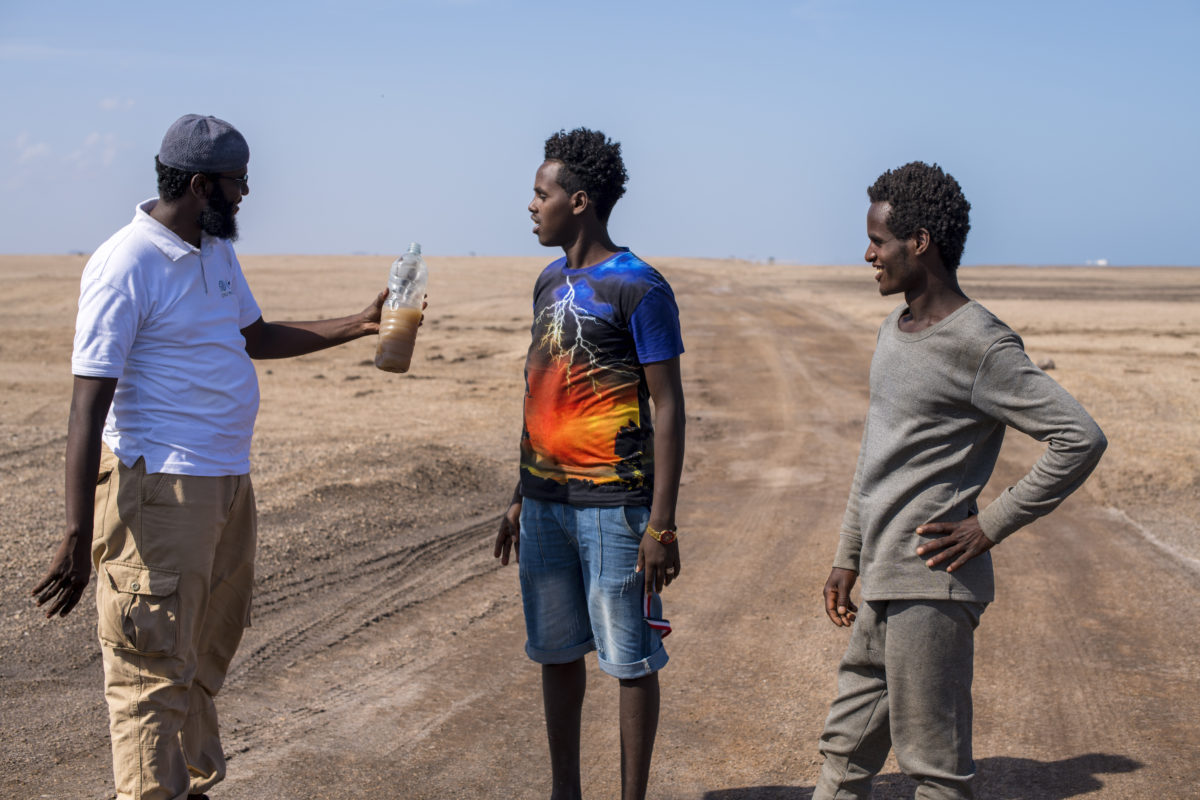
Returning home is a central aspect of the lives of refugees and migrants around the world. Returns take place in many different contexts, after short or longer periods and both voluntarily and under duress, and returnees and their families experience a wide range of challenges to successful and sustainable reintegration.
ICMC is supporting its member organizations to assist returning migrants and refugees, and the communities they return to, to build safe, dignified and sustainable return and reintegration. Below, we take a brief look at return and returnees around the world, and profile ICMC-supported member actions in the Central African Republic, Haiti, Ivory Coast, and South Sudan.
Who are returnees?
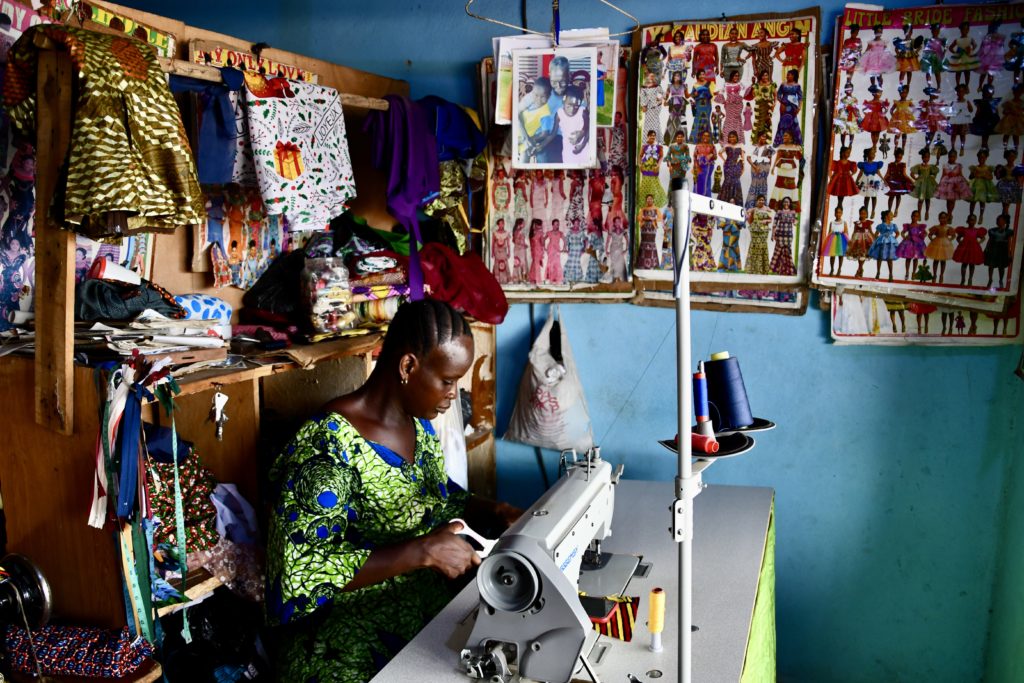
In 2023, 6.1 million displaced people returned to their areas or countries of origin, including 5.1 million internally displaced persons (IDPs) and just over 1 million refugees. Nearly 62% of all IDP returns were in the Democratic Republic of the Congo (1.8 million) and Ukraine (1.3 million), while four of every five returning refugees were Ukrainian or South Sudanese.
For the UN Refugee Agency (UNHCR) returnees are refugees or internally displaced persons who have returned to their country or area of origin to remain there permanently, but who are not yet fully reintegrated into their community. Outside of displaced populations, many millions of migrants voluntarily return to their country of origin every year. Destination countries may also forcibly remove migrants with an irregular status or those who have exhausted asylum processes, where they do not return voluntarily.
Returnees thus encompass a diverse range of people, including refugees, those displaced within their countries due to conflict, violence, and climate-related factors, returning participants in a prior conflict, returning migrant workers and students, those returning after an unsuccessful attempt to reach an intended migratory destination, and those who have been forcibly removed or deported. Returnees are both single people and those within family units, including families with children.
As many migrants return independently and without the support of organizations or governments, the vast majority of migrant returns are unrecorded. Programs supporting migrants who wish to return to their home countries but are unable to do so, such as those implemented by the International Organization for Migration (IOM), have seen significant increases in the numbers seeking and benefiting from their assistance in recent years.
Voluntary repatriation for refugees: a durable solution?
Voluntary repatriation is one of the three durable solutions that the UN Refugee Agency (UNHCR) is mandated to provide for refugees, alongside local integration in a country of asylum and resettlement to a third country.
UNHCR supports refugees to return via two key approaches: ‘promoted returns’, which take place as part of a large-scale return operations in cooperation with governments, and ‘facilitated returns’, in which UNHCR offers some support to refugees returning on their own initiative, even where it may not be considered safe for them to do so.
Of the approximately 1 million refugees who returned in 2023, just over 310,000 were assisted by UNHCR. The agency also assisted approximately 376,000 of the 5.1 million IDPs who returned to their communities and regions of origin during the same period. In 2024, UNHCR is engaged in multiagency voluntary repatriation and reintegration activities in 79 countries.
UNHCR policy stresses the voluntary nature of return, highlights the importance of cooperation between UNHCR and the governments of countries of asylum and origin, and emphasizes UNHCR’s role in implementing and supporting reception and reintegration measures.
While refugee return is often seen as the natural end point of displacement, in reality it is ‘episodic, intermittent and often not permanent’. Political, social, economic, and environmental factors affect both return operations and the longer term sustainability of return. Although returnee rights and security are addressed in repatriation schemes within negotiated peace processes, most refugee returns are ad-hoc and take place outside of these frameworks, without similar guarantees.
These challenges, combined with the protracted nature of many of the world’s conflicts and emergencies, mean that voluntary repatriation is not a widely available durable solution for refugees. Although UNHCR considers it to be ‘the most appropriate solution for refugee problems’, the 1.1 million refugees who returned in 2023 represent just 2.5% of the world’s refugee population.
Return and reintegration: challenges for returnees
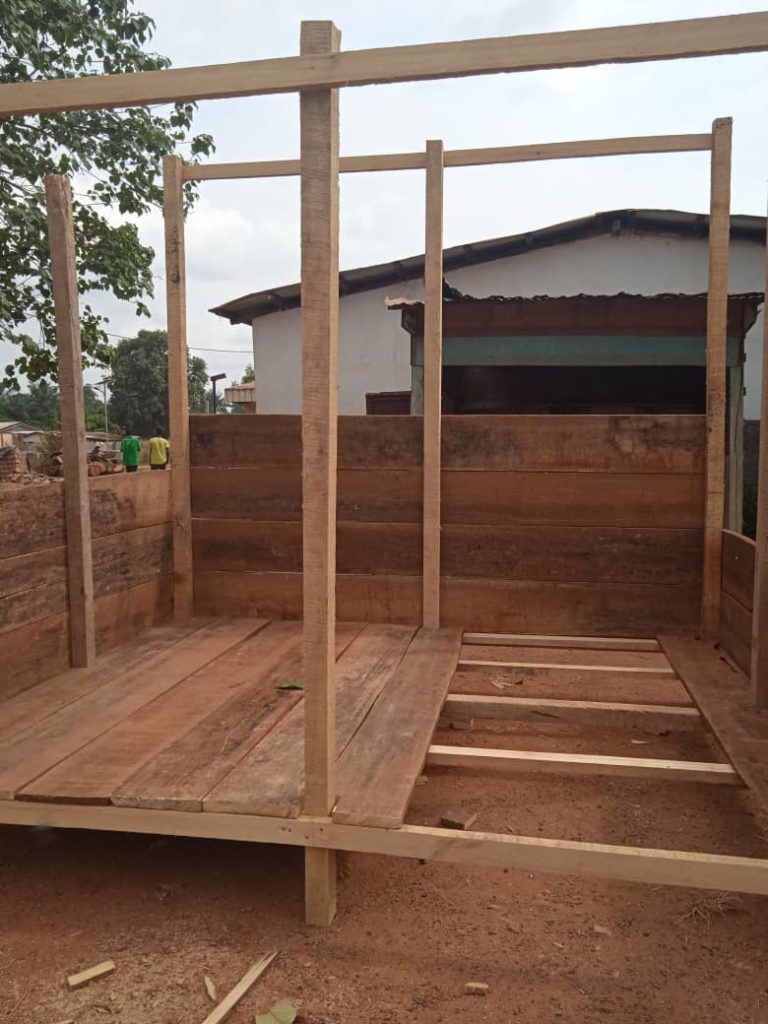
‘Reintegration’ is a multidimensional process that takes place at an individual, family, community, and societal level. For individual returnees and their families, successful reintegration means being able to enjoy full political, civil, economic, social, and cultural rights alongside others in their community.
Returning refugees and migrants experience several common challenges to successful reintegration, including continued insecurity, a lack of livelihood opportunities, the theft, destruction, or confiscation of housing and land, a lack of identity documents, and insufficient access to basic services such as healthcare. Depending on the length of time spent away from home communities, migrants may experience difficulties in ‘fitting in’ to their community of origin, with resulting social exclusion impacting their mental health and wellbeing. Returnees must additionally rebuild the social and professional networks that are of central importance to acquire a sense of belonging, maintain a social safety net, and access employment.
International cooperation for sustainable return and reintegration
The Global Compact for Safe, Orderly and Regular Migration (GCM) is an international agreement adopted by 152 States in December 2018, and the first-ever global framework for migration governance. Objective 21 of the GCM sets out a commitment for States to ‘cooperate in facilitating safe and dignified return and readmission, as well as sustainable reintegration’.
The GCM Progress Declaration, agreed at the first International Migration Review Forum in May 2022, noted how some States had taken positive action on returns, including supporting the reintegration of returning nationals and suspending forced returns during the COVID-19 pandemic. Less positive were return and removal operations carried out with ‘insufficient regard for health risks or due process and procedural safeguards, including the best interests of the child’.
In terms of commitments for future action on migrant return and reintegration in the framework of the GCM, the Progress Declaration notes that States will strengthen cooperation to ensure safe and dignified return, including by making the best interests of the child a primary consideration, and build new partnerships to assist sustainable reintegration. States also made important commitments on international cooperation to recover wages, benefits, and entitlements of returning migrants, ensure access to identity documents, and provide returning migrants with equal access to social protection and services.
Also adopted in December 2018, with 181 State signatories, the Global Compact on Refugees provides a framework for international cooperation to offer sustainable solutions for refugees. The fourth of the GCR’s four overall objectives addresses return as a durable solution for refugees via a commitment to ‘support conditions in countries of origin that enable refugees to return in safety and dignity’.
The conclusions on progress against this objective set out in the annual GCR Indicator Report for 2023 notes positive, ongoing work on improving global data on refugee returns, which is currently available for just 30 countries, and on addressing the data gaps created by limited identity documentation and civil registration. To create conditions that support more sustainable voluntary return and reintegration in the future, it emphasizes the need to strengthen cooperation across the humanitarian, development, and peacebuilding sectors.
Around the World: ICMC Members Building Safe and Sustainable Return and Reintegration
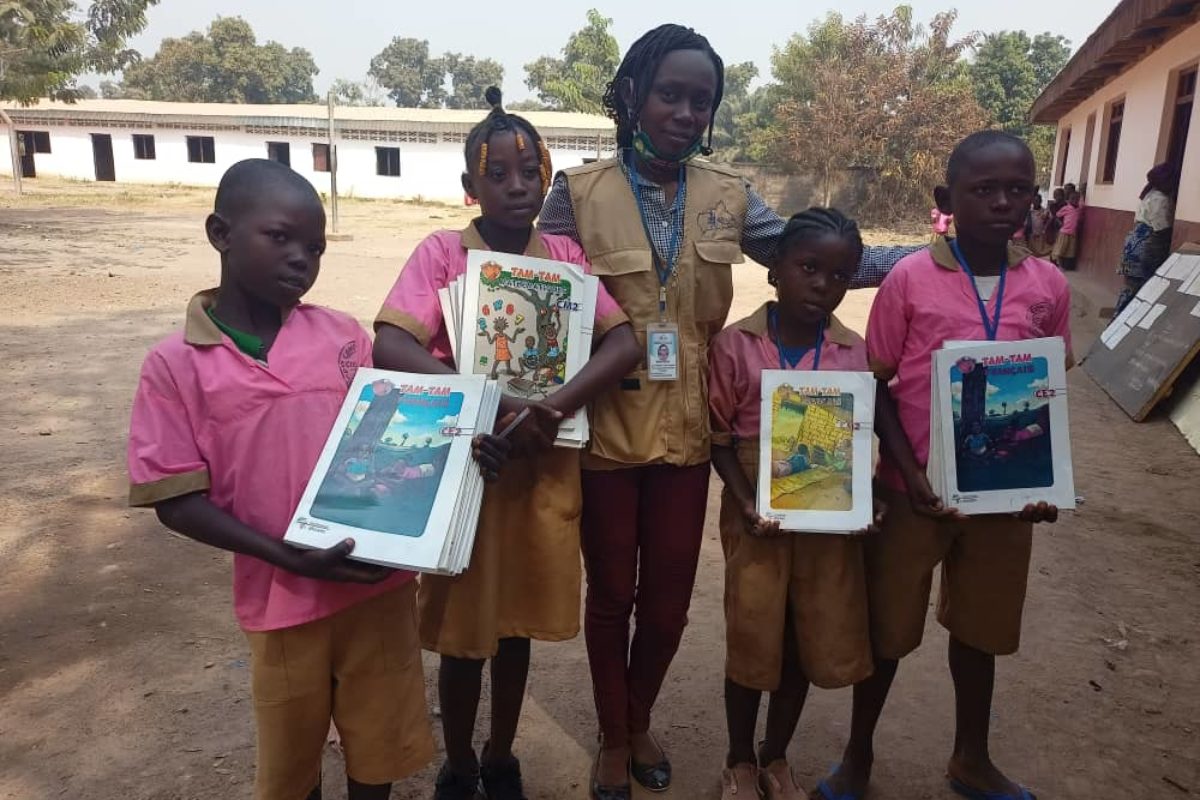
The Central African Republic gained independence in 1960, and since then has experienced decades of violence, instability, and displacement. The sporadic nature of violence in the country means returns have taken place alongside ongoing displacement. In 2023, more than 750,000 nationals were living as refugees in neighboring countries in the region, while a further 535,000 were internally displaced.
Almost 100,000 Central African refugees independently returned to the Central African Republic from neighboring countries between 2017 and 2021. The UN Refugee Agency (UNHCR) has assisted approximately 36,700 people in returning since 2019 via voluntary repatriation tripartite agreements between the governments of the Central African Republic, Cameroon, and the Democratic Republic of the Congo.
Adverse security and humanitarian conditions and the return of 10,000 Central African refugees in 2023 due to conflict in Sudan and Chad have limited large-scale programs. In 2023, UNHCR facilitated just 4,174 voluntary returns to areas of the country where the security situation had improved. At the end of 2023, just under 358,000 refugee and internally displaced returnees resided in the Central African Republic.
Ensuring Access to Education for Returning and Displaced Children
The Episcopal Commission for Migrants and Refugees (CEMIR), ICMC’s member organization in the Central African Republic, has long worked to ensure safe and dignified return for Central African refugees. In 2023, ICMC supported CEMIR to improve access to education for returning and displaced children in selected areas, and build the capacity of education professionals to respond effectively to their needs.
Since August 2023, CEMIR has re-enrolled 200 returning and displaced children aged 5-15 years in pre-school and primary education in 4 localities in southern and western Central African Republic, and provided school kits, two uniforms per child, and support for an initial year of school fees. CEMIR also facilitated pedagogical capacity building workshops for 80 teachers in schools receiving returned and displaced children, focused on mental health and psychosocial support, child protection, and safeguarding.
Providing Homes and Shelter
A key challenge for those returning is regaining access to their properties, which in many instances have been destroyed or taken over by new occupants.
Beginning in late 2022, with support from ICMC, CEMIR built homes for 30 returning families in the towns of Bangui and Zémio. The new homes provide shelter for 240 individuals, including 200 children. The identification of beneficiary families was a collaborative effort involving consultation with CEMIR field teams and a wide range of community stakeholders, and priority was accorded to the most vulnerable families, including households headed by females who have lost husbands or fathers during the conflict.
Reintegration of Children Formerly Associated with Armed Groups
Amongst returnees in CAR are more than 15,500 children formerly associated with armed forces and groups, formally or informally released since 2014, at least 30% of whom are girls. This group faces severe and specific reintegration challenges, including insufficient funding for measures to support them, a lack of long-term measures to address and fight the root causes of children’s recruitment, legal barriers to children accessing reintegration support, and exclusion caused by stigmatization and rejection. A lack of effective reintegration assistance for this group risks negative long-term effects for them, their communities, and wider peace and development gains.
Since late 2023, CEMIR is assisting 40 such children and young people (20 boys and 20 girls) in the towns of Bambari, Bozoum, and Cantonnier to access literacy courses, and vocational training in mechanics, carpentry, welding, and sewing. More than half of participating girls are heads of households and without family support, and the project provides an alternative to providing for their families via prostitution.
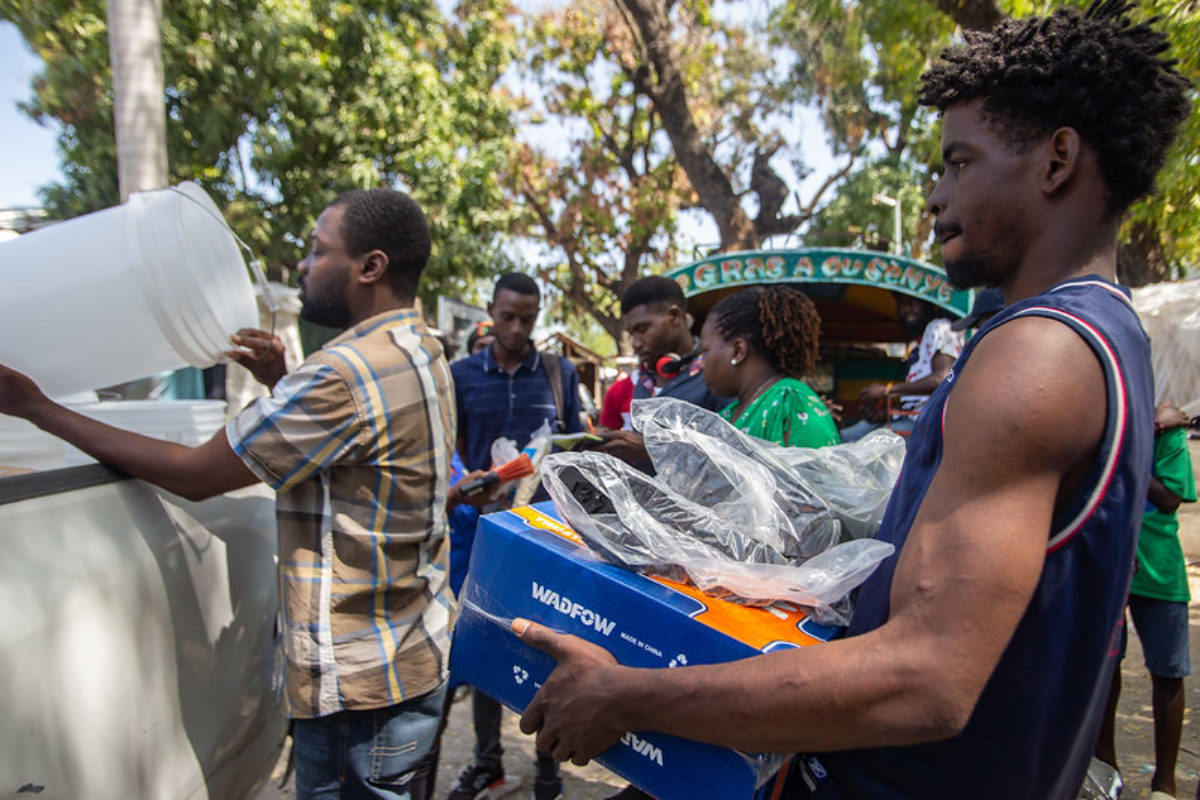
Since 2020, ongoing violence between rival criminal gangs has blighted Haiti’s capital city Port-au-Prince. The violence surged in 2024, with 2,500 persons killed from January to March, a more than 53% increase in casualties on the previous quarter. By May 2024, more than 362,000 Haitians were internally displaced, 182,000 of whom were children.
The protection situation of internally displaced persons in Haiti is extremely concerning, in particular for the many who are living in makeshift sites in schools, churches, and disused buildings. These sites lack sanitation facilities and access to clean water, while internally displaced persons face severe challenges in accessing sufficient food and basic healthcare. More than 84,000 suspected cases of cholera had been reported by the start of June 2024, with just under 4,900 confirmed, almost half of whom are children.
Prior to the current wave of violence, approximately 500,000 Haitian migrants were living in neighboring Dominican Republic. In response to a diplomatic dispute, in September 2023 the Dominican Republic closed all borders with Haiti and suspended visas for Haitians. In the remainder of 2023 more than 250,000 Haitians were forcibly returned from the Dominican Republic. Forced returns continue in 2024, with just over 30,000 Haitian nationals removed in March and April, a more than 150% increase on the preceding first two months of the year.
Human rights organizations have condemned the collective detention and expulsion of Haitian nationals, including children and pregnant women, and called on authorities in the Dominican Republic to restore asylum procedures, re-open legal migration channels, and investigate “allegations of racist violence and other human rights violations committed by migration officials, police and members of the armed forces”. UNCHR and U.S. bishops have additionally called on the U.S. government to cease return operations to Haiti “given the dire security and humanitarian situation” in the country.
Adapting to Emergencies, Supporting Reintegration
Since May 2023, ICMC has supported the Episcopal Commission for Migration, its member in Haiti, in implementing a program of action to assist internally displaced persons, returnees, and the communities receiving them.
In Ouanaminthe, a northern city just over the border with the Dominican Republic, the first phases of the project facilitated the distribution of food and hygiene kits to internally displaced persons and returnees, and financial assistance to enable 35 individuals to establish income-generating activities. Escalating violence, and in particular armed gangs taking control of roads leading to the far north of Haiti, prevented planned community training on responding to the specific challenges faced by migrants and returnees.
Adapting to these circumstances, ICMC and CEMI agreed to redirect the focus of the project to returnees in the Delmas commune of the capital city, Port-au-Prince. Here, CEMI is providing 150 children of returnees with school kits, supporting income-generating activities, and providing cash assistance to facilitate reintegration.
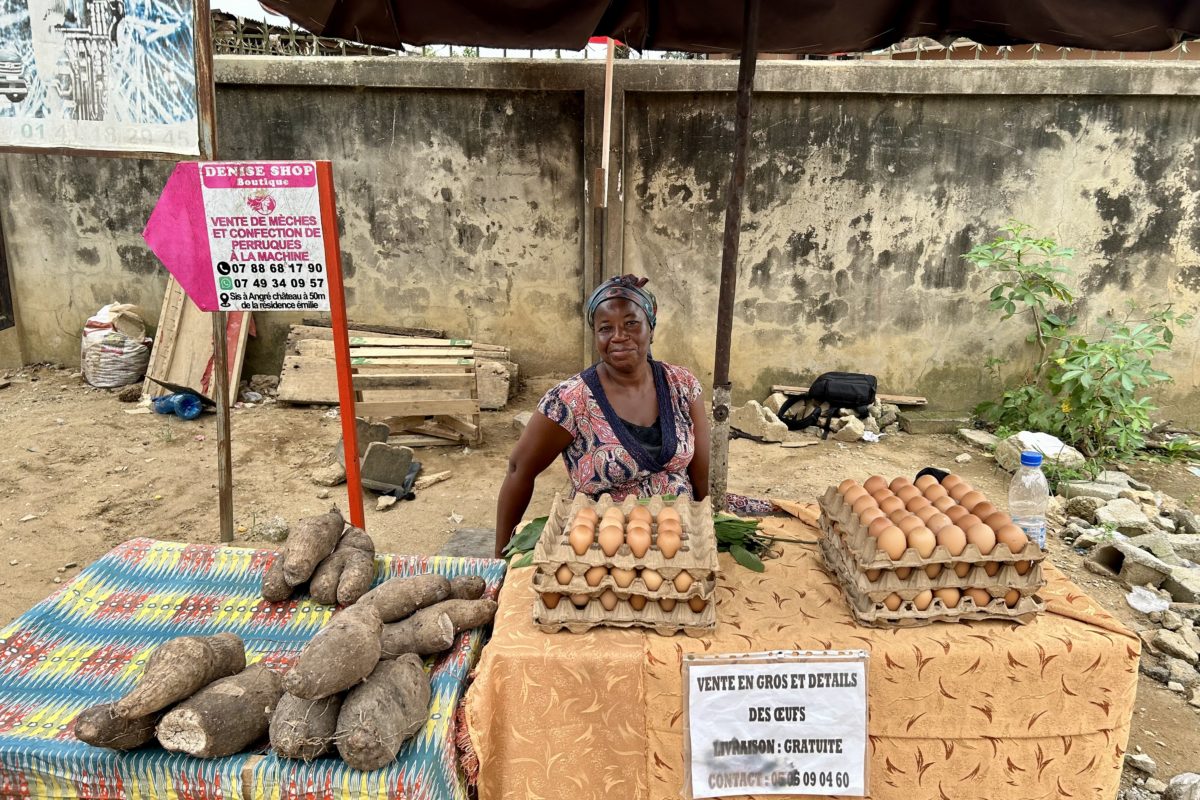
Since 2002, hundreds of thousands of people from Côte d’Ivoire have fled two civil conflicts and episodes of sporadic violence linked to elections and political conflict.
Since 2011, some 290,000 Ivorian refugees living in West Africa have voluntarily returned, while voluntary repatriation efforts by UNHCR began as far back as 2012, with a program to return 15,000 Ivorian refugees from Liberia. In September 2021, ‘in light of the fundamental and durable changes’ in Côte d’Ivoire, UNHCR announced the cessation of refugee status for Ivorian refugees living in the region, to take effect in June 2022. There was a sharp increase in voluntary returns in the run-up to cessation, with more than 43,200 returning mainly from Liberia, Ghana, and Guinea. Cessation took place alongside a Comprehensive Solutions Strategy to find a durable solution for all Ivorian refugees, that included measures to support return and reintegration.
Alongside refugees, many migrants are returning to Côte d’Ivoire, having attempted an unsuccessful journey to Europe or having spent time in a European country or third country en route. Those who were unsuccessful in their migratory journey or who return without significant capital to show for their time spent abroad often face considerable stigma and exclusion on their return.
Migration-related debts, or debts incurred in order to fund the costs of migrating, cause particularly significant reintegration challenges for returning migrants. Money is primarily loaned by family and friends, and those with unpaid immigration debts are therefore deemed untrustworthy, creating challenges for both social reintegration and finding employment. Returning migrants’ resources are largely directed toward debt repayments, negatively impacting their economic situation and, in some cases, triggering repeat migration.
Many returning migrants have experienced extreme rights violations during their migratory journeys toward Europe, including sexual and gender-based violence, kidnapping, torture, and physical abuse. Both psychosocial support and specialist services for victims of trafficking are extremely limited in Côte d’Ivoire, meaning many migrants are unable to find support to manage the effects of their traumatic experiences.
Psychosocial Assistance and Economic Reintegration for Young Returning Migrants
In 2023, ICMC and the Episcopal Sub-Commission for Migrants, Tourism, the Apostolate of the Sea and People on the Move, part of ICMC’s member the Episcopal Commission for Migrants in Côte d’Ivoire, have worked together with local churches to implement a wide-ranging project to provide psychosocial assistance and economic reintegration support for vulnerable young migrants in Côte d’Ivoire.
Taking place in nine municipalities in the city of Abidjan with high numbers of returning migrants and a high migration rate, the project provided referral and transportation assistance for returned migrants to access psychosocial support from social workers, benefiting 35 young returning migrants. 83 returning migrants completed basic accounting and management training provided by the project, while a further 17 completed professional vocational training. The project additionally provided seed capital to begin an economic activity and/or assistance to enroll in school or university.
The Episcopal Commission additionally collaborated with government-run social centers to support returned migrant youth to reintegrate within their families, facilitated parent groups, and engaged families in providing foster care, as well as running educational sessions and broadcasting radio programs to increase awareness among young people about the risks of irregular migration, reaching approximately 3,000 people.
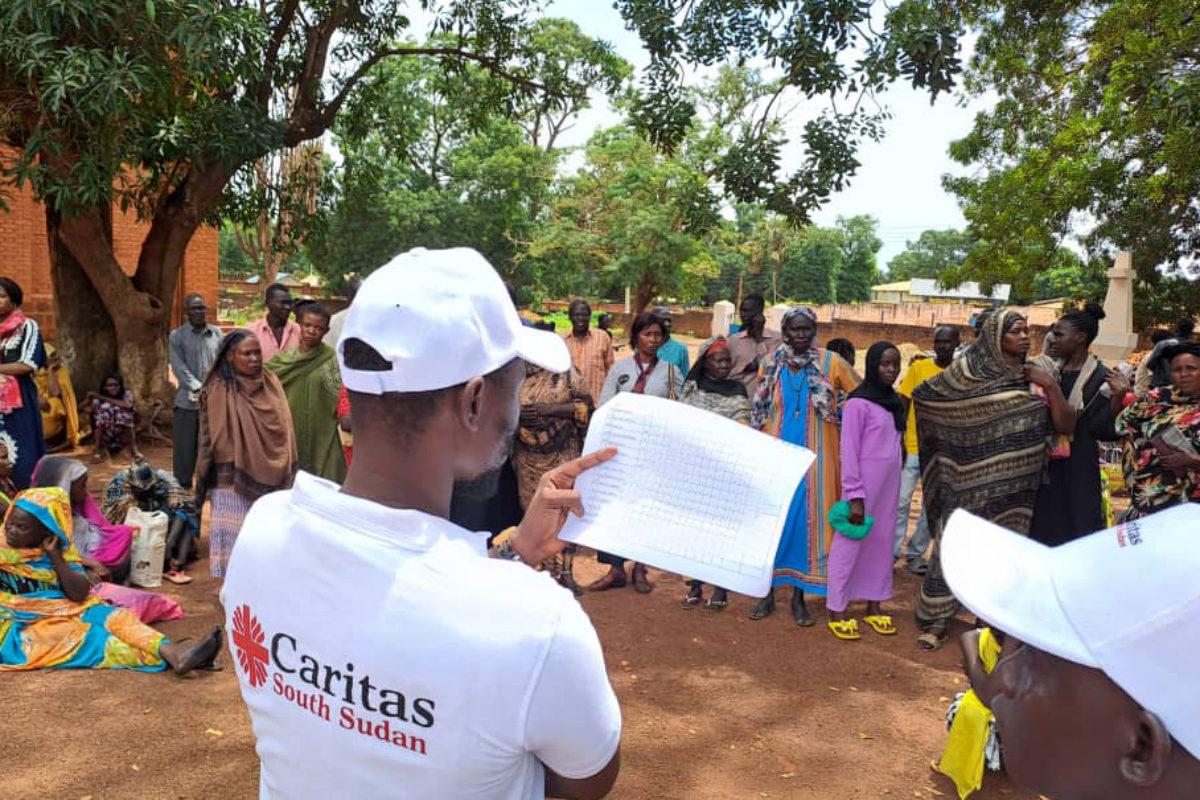
The Republic of South Sudan gained independence from Sudan on 9 July 2011, following a brutal civil conflict that took place from 1983 to 2005. The subsequent South Sudanese Civil War, a multi-sided conflict involving both government and opposition forces from 2013 to 2018, resulted in the deaths of around 400,000 people and the displacement of 4 million more.
Although the war has formally ended, the security and humanitarian situation in South Sudan remain highly unstable. 2.2 million South Sudanese remain internally displaced, and at the end of 2023, approximately 46% (5.83 million people) of the population was experiencing high levels of acute food insecurity, further compounded by droughts and floods.
Today, South Sudan is experiencing a new set of challenges caused by a large-scale conflict that erupted in neighboring Sudan in April 2023. By July 2024, just over 577,000 South Sudanese refugees had returned from Sudan, together with many Sudanese refugees also fleeing the conflict. The majority of refugees and returnees fleeing Sudan enter South Sudan via the northern border and arrive at the town of Renk, where both formal and informal transit centers designed for short-term stays are now severely overcrowded, creating ‘deplorable conditions’. Overcrowding means many new arrivals are unable to access the centers and are instead living in areas outside, without basic shelter or access to sanitation.
Returns from Sudan take place in the context of the 763,000 South Sudanese refugees, previously displaced to neighboring countries by the South Sudanese Civil War, who have since 2017 chosen to return to areas in South Sudan that are often unable to provide basic services.
Emergency Responses for Sustainable Return: Caritas South Sudan
The Catholic Bishops’ Conference of Sudan and South Sudan (S/SSCBC), ICMC’s member in Sudan and South Sudan, officially came into being in late 2011. Caritas South Sudan was founded in 2011 as the official organization of the Bishops’ Conference. Since its establishment, Caritas South Sudan has implemented a wide range of emergency actions supporting both South Sudanese returnee and refugee communities across the country.
In 2023, support from Caritas Internationalis enabled Caritas South Sudan to implement 22 rapid response projects in Malakal, Wau, and Juba dioceses and Abyei Parish, providing emergency food assistance (1100 food-vulnerable households, or 5,500 persons), emergency shelter and life-saving non-food items (1000 returnee households, or 5,000 persons), and onward transportation for 4,000 returnees and refugees from the border areas to home counties or other return destinations. The projects included conducting registration exercises at entry points, collaborating with local authorities and partners to verify travel, organize logistics, and distribute cash, and conducting post-transport monitoring of returnees in home counties.
In January 2024, Caritas South Sudan extended this response by beginning a national 12-month emergency response and early recovery assistance project. The project strengthens the resilience of returnees, internally displaced persons, and host communities affected by both displacement from the Sudanese conflict, and natural and man-made disasters in the shape of floods and droughts. Targeting just under 30,000 direct beneficiaries, the program provides a wide range of crucial interventions in areas such as food assistance, water, sanitation, shelter, livelihoods, school support, and climate mitigation.
Read more about the work of ICMC’s members to support return and integration

Rachel Westerby
Independent writer and researcher on migration, refugees and human rights.

